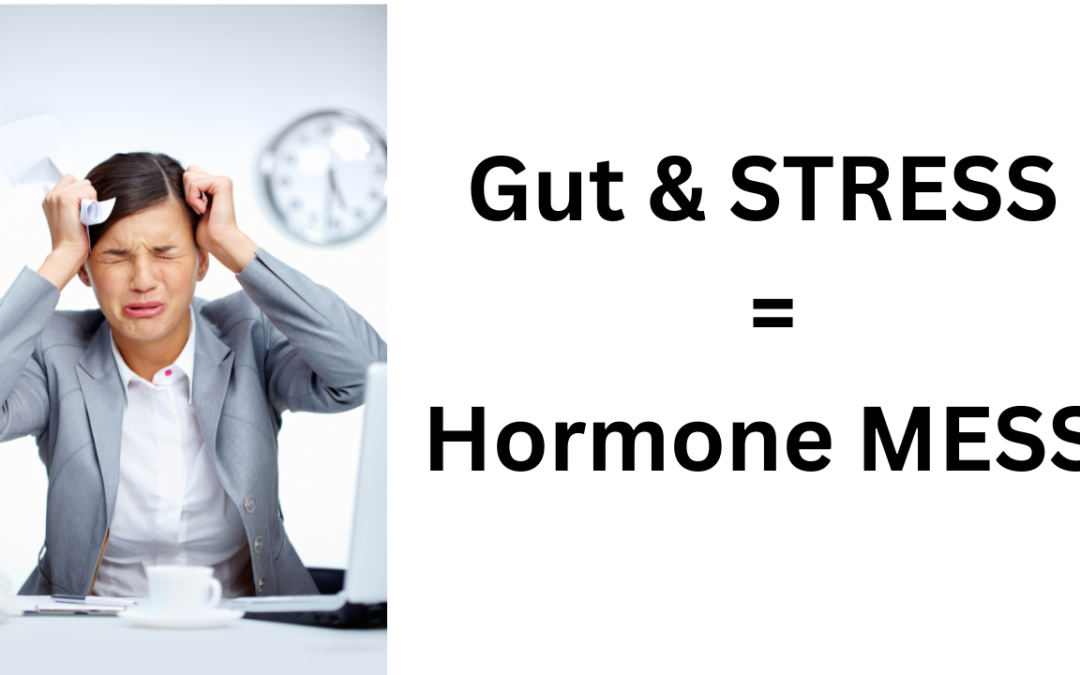Did you know your gut is actually an endocrine gland — a hormone-producing organ that plays a powerful role in your overall hormonal balance?
Your gut does far more than digest food. It communicates with your brain, thyroid, adrenals, and ovaries, influencing your mood, metabolism, energy, and even sleep. And for most women, this gut–hormone connection can be life-changing.
The Gut–Hormone Connection Explained
Inside your gut lives a community of microorganisms known as the gut microbiome. These beneficial bacteria influence the production and regulation of key hormones in your body, including:
1. Estrogen Regulation
A special group of bacteria called the estrobolome helps metabolise and balance estrogen.
When this system is out of balance, estrogen can build up or drop too low — contributing to symptoms such as hot flushes, PMS, mood swings, and weight gain.
2. Serotonin and Dopamine
Up to 90 percent of serotonin and much of your dopamine (your “feel-good” and motivation chemicals) are produced in your gut.
An imbalanced microbiome can directly affect your mood, motivation, and sleep quality.
3. Melatonin
Your gut bacteria influence melatonin, the hormone that regulates your sleep–wake cycle. A healthy gut supports deeper, more restorative sleep.
4. Thyroid Hormones
Your gut helps convert T4 to T3, the active thyroid hormone that drives your metabolism and energy.
If your gut health is poor, this conversion can slow down, leading to fatigue, low energy, and sluggish metabolism.
5. Stress Hormones
Certain gut bacteria can actually raise your adrenaline and cortisol levels — the body’s stress hormones.
If cortisol is already elevated in perimenopause, this can make anxiety, irritability, and fatigue worse.
When your gut bacteria are imbalanced (a condition known as dysbiosis), these hormonal systems fall out of sync, worsening hormonal symptoms.
How Hormones Affect Gut Health (and Vice Versa)
It’s a two-way street: your gut affects your hormones, and your hormones affect your gut.
During perimenopause, fluctuating estrogen and progesterone can slow digestion and affect the motility of food through your digestive tract.
You may notice new or worsening symptoms such as:
- Bloating or constipation
- Reflux or indigestion
- Food intolerances or allergies
- Irritable bowel symptoms
When your gut and hormones are out of sync, these symptoms can easily snowball — impacting your energy, mood, and quality of life.
The Biggest Disruptor: Stress
Stress is one of the most significant factors affecting both your gut and your hormones.
And it’s not just emotional stress. It can also be:
- Emotional: anxiety, overwork, relationship tension
- Physical: over-exercising, being sedentary, or under-eating
- Environmental: exposure to toxins, chemicals, or allergens
Chronic stress disrupts gut bacteria, causing inflammation, intestinal permeability (leaky gut), and a burdened liver.
When the liver is overworked, it can’t clear excess hormones effectively — creating a vicious cycle of hormonal imbalance.
How to Support a Healthy Gut–Hormone Connection
Here are some simple but powerful ways to care for your gut and hormones naturally:
- Nourish your microbiome – Eat plenty of wholefoods, fibre, prebiotics, and (if tolerated) fermented foods.
- Manage stress daily – Practice mindfulness, deep breathing, gentle yoga, or walking outdoors.
- Support liver detoxification – Stay hydrated and include cruciferous veggies like broccoli and cauliflower.
- Prioritise rest and sleep – Quality sleep helps both gut repair and hormone balance.
- Listen to your body – Bloating, constipation, or low mood are signs your gut might need extra care.
Join Me at the Midlife Reset Summit
If you’d like to learn more about resetting your mind, body, and hormones in midlife, join me and over 20 expert speakers at the Midlife Reset Summit, starting October 14th.
It’s completely free to join! Click here to register – https://resikanarain.com/registration-page?am_id=katedriver
You’ll discover natural ways to balance your hormones, boost your energy, and support your emotional wellbeing through perimenopause and menopause.
There’s also a VIP option with incredible bonuses, including my mini-course on thriving naturally through perimenopause, plus gifts from other experts.


